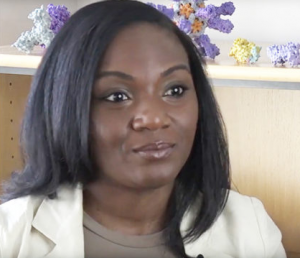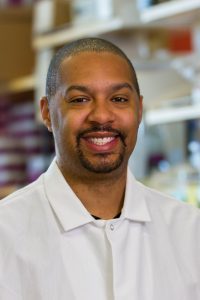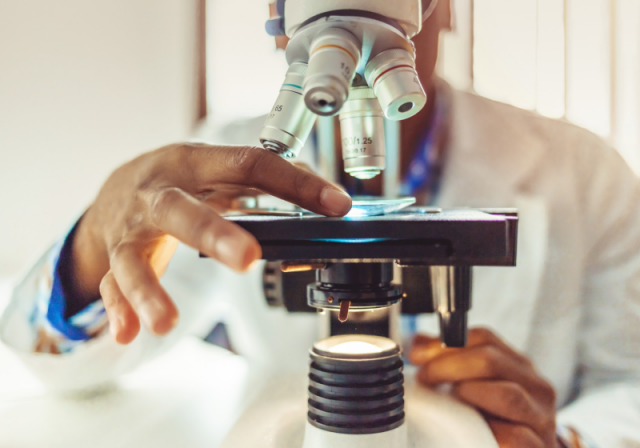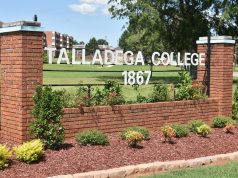By Lois Elfman
diverseeducation.com
Temporarily putting aside their ongoing research, scientists are addressing the impact of COVID-19 on communities of color and seeking solutions.
The COVID-19 pandemic hit Black communities around the United States quickly and furiously. While all of the country has felt the devastation of this virus, communities with limited access to healthcare have been hit hardest.
As Black physicians, nurses and other healthcare providers have been on the front lines with the sick, Black research scientists have been trying to gather and analyze information that will abate the further spread of the virus.
“African American scientists are poised to offer unique perspectives,” says Adrianne D. Gladden-Young, a senior research associate for the infectious disease and microbiome program at the Broad Institute of MIT and Harvard. “We can shine spotlights on the blind spots that exist in science, which continue to exclude the most vulnerable groups from important research.
“The research community should listen to [the] voice of the community and trust the community knows what it needs,” she adds. “Our job as a research community would be to use our tools and expertise to address these needs that have been communicated by communities of color.”
 Dr. Christopher O. Barnes — Vaccine Development
Dr. Christopher O. Barnes — Vaccine Development
A Hanna H. Gray Postdoctoral Fellow affiliated with the Howard Hughes Medical Institute, Dr. Christopher O. Barnes conducts research in the fields of biochemistry and biophysics. Working in the lab of Dr. Pamela Bjorkman at Caltech, Barnes has been investigating the structural correlates of antibody-mediated neutralization of HIV-1, but is currently focusing on SARS-CoV-2, the coronavirus that causes COVID-19.
“Simply put, we are trying to learn how the body uses immune defenses to combat the SARS-CoV-2 virus with the hope that this knowledge will pave the way to create an effective vaccine, which is not only needed against SARS-CoV-2, but also against new coronaviruses that are likely to emerge,” explains Barnes about his work in collaboration with the Nussenzweig Lab at Rockefeller University.
“We obtained blood samples from people who had recovered from COVID-19, convalescent individuals, and isolated each person’s unique mixture of antibodies to discover which types of antibodies are best at fighting or neutralizing the virus,” he continues. “As part of my work, I sought to understand how the best antibodies actually work at the molecular level.”
The Hanna H. Gray Fellows Program seeks to identify and support talented, early career scientists from underrepresented populations. Barnes says, in addition to helping him grow as an independent scientist, the program has expanded his network of Black and Latinx scientists.
As the COVID-19 pandemic has unfolded, Barnes had numerous discussions explaining the science behind SARS-CoV-2. He uses his social media platform to highlight the work being done at the Bjorkman lab.
“I cannot separate myself from my experiences and events — both good and bad — happening in the world,” says Barnes, who had a research paper published as Los Angeles County was under curfew due to civil unrest arising from the death of George Floyd in police custody. “I utilized the resulting spotlight to … speak up about the experiences of the Black community in science and to keep the spotlight on the movement to promote changes that will fight systemic racism.”
Dr. Kizzmekia S. Corbett — Vaccine Development
An alumna of the Meyerhoff Scholars Program at the Univ. of Maryland, Baltimore County, Dr. Kizzmekia S. Corbett is on the front lines of research for the development of a vaccine for COVID-19. She is a senior research fellow and scientific lead for the Coronavirus Vaccines & Immunopathogenesis (coVip) Team in the Viral Pathogenesis Laboratory for the Vaccine Research Center at the National Institutes of Allergy and Infectious Diseases, National Institutes of Health.
Under the supervision of the principal investigator, Corbett directs the scientific questions, experimental design and interpretations around the coronavirus vaccine studies within the team.
“Utilizing some of our knowledge that we have from other coronavirus vaccines that we had designed with our collaborators, [we] initiated this response to the COVID-19 pandemic … to move a vaccine into phase one trial and essentially respond in a way so that we could act as quickly as possible to get the vaccine, if all things went well, into the general population,” says Corbett.
Vaccine development must go through clinical trials and non-clinical studies. “We’ve been looking at how mice and non-human primates respond to the vaccine to inform what the trajectory of the vaccine is from an efficacy standpoint and also from a safety standpoint,” explains Corbett.
Corbett considers it a blessing to be able to utilize her knowledge to be part of the response to this pandemic. There is pressure, but there is an overriding sense of purpose. “Good data drives down the pressure,” she says.
UMBC’s Meyerhoff Scholars Program seeks to increase the representation of minorities in science and engineering. Corbett says the program was integral in her development as a scientist, providing a support network and opportunities that led her to a career as a research scientist. The sense of collaboration that was emphasized is extremely relevant in this time as scientists are working together toward a shared goal.
“What I have to give [during this pandemic] is the science that can hopefully 1) inspire; 2) create some hope; and 3), if it all goes well, render a product that will be useful in saving lives,” says Corbett.
Dr. Debarshi Roy — Building the Immune System
Dr. Debarshi Roy is an assistant professor of biology at Alcorn State University, an HBCU in Mississippi. He is currently doing individual research as well as collaborating with fellow faculty member Dr. Archie C. Taylor (a 2020 Diverse emerging scholar) to research COVID-19. Together, they are establishing a protocol to identify Single Nucleotide Polymorphisms in the ACE2 protein that allows the SARS-Novel-Coronavirus to enter cells. Recent data suggests that genetic differences in the protein among races may contribute to higher infection, mortality and morbidity rates in African Americans.
The university is not eligible to do COVID-19 vaccine research, so Roy is exploring other responses. Four undergraduate students and one graduate student have been doing epidemiological-based studies to track and monitor the virus. Working remotely, the students are collecting data such as hospitalizations and socioeconomic information and doing data analysis, developing a picture of who is getting infected and who is dying, including male-female ratio, race and pre-existing conditions.
“My primary research background is cancer, but I have interest in health disparity,” says Roy. “When you look at COVID, it is more aggressive in people having a pre-existing disease. … We will find out what kinds of pre-existing conditions there are in the people in this area which are causing a high mortality or morbidity rate in people of color.”
Pre-existing conditions such as cardiovascular disease, diabetes and obesity increase susceptibility to COVID-19. Roy will analyze specimens collected from infected patients at the University of Mississippi Medical Center.
A COVID-19 vaccine will take time to develop, and Roy says alternative solutions must be explored in the interim. One of his research interests is looking into how nutritional intervention can enhance the immune system.
“My message is we have to boost up our immunity and fight against this disease,” Roy says. “I want to examine … what kinds of changes scientists can bring in the society.”
 Dr. Michael D. L. Johnson — Exploring Treatments
Dr. Michael D. L. Johnson — Exploring Treatments
An assistant professor of immunobiology at the University of Arizona College of Medicine, Dr. Michael D. L. Johnson is researching possible cures for people infected with COVID-19. The overall goal of his laboratory is to investigate how bacteria maintain homeostasis within the metal milieu. Johnson notes that he is not a virologist; he is a bacteriologist.
“We have some compounds that may actually work to hinder the virus’s progress in infection,” says Johnson. “It is through collaboration that I’m working with a virologist on campus named Dr. Koenraad Van Doorslaer. He’s working with the virus and testing our hypothesis on how the compounds that we have in hand work with their system to prevent how the virus spreads.”
While scientists in the vaccine realm do their research, Johnson focuses on treatment. Johnson and Van Doorslaer are looking at how different types of metals can bind to various parts of the virus to disrupt how the virus works. Johnson deals with copper. The virus or other bacteria by and large do not use copper, so it’s a metal that Johnson hopes can be used in a beneficial way to try and poison the virus.
To advance research helping communities of color through the pandemic, Johnson has created an online matchmaking system for students of color seeking remote/virtual research opportunities — the National Summer Undergraduate Research Project. Recently, 140 undergraduates have been matched with about 100 mentors in the microbial sciences.
“Each individual mentor came up with a project for a student,” says Johnson. “Everything having to do with microbiology. … These are helping things press on and move forward.”





